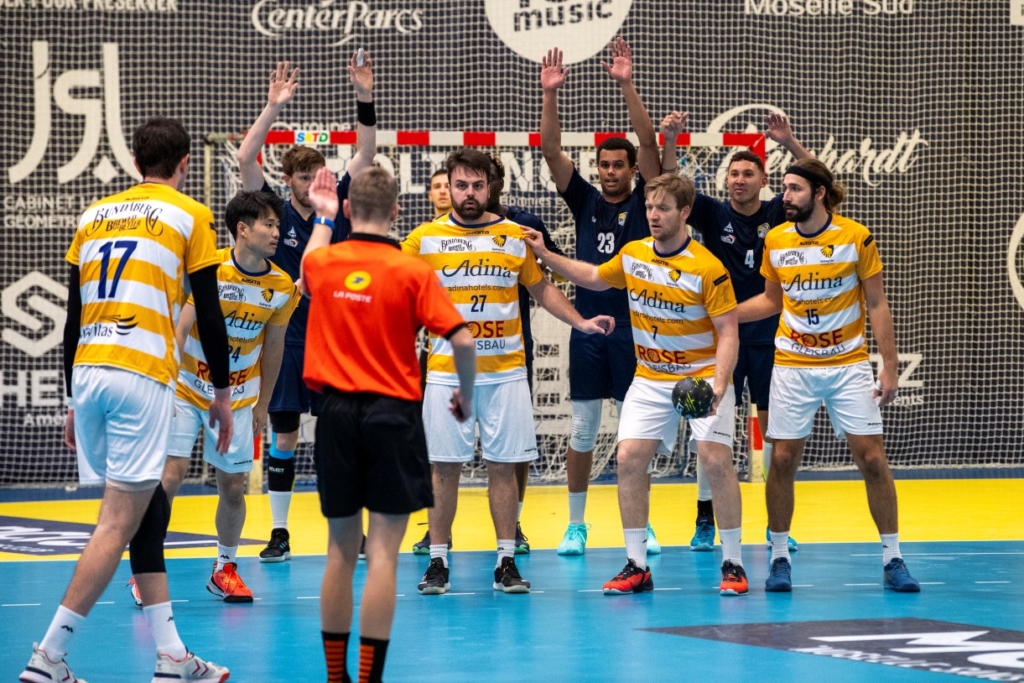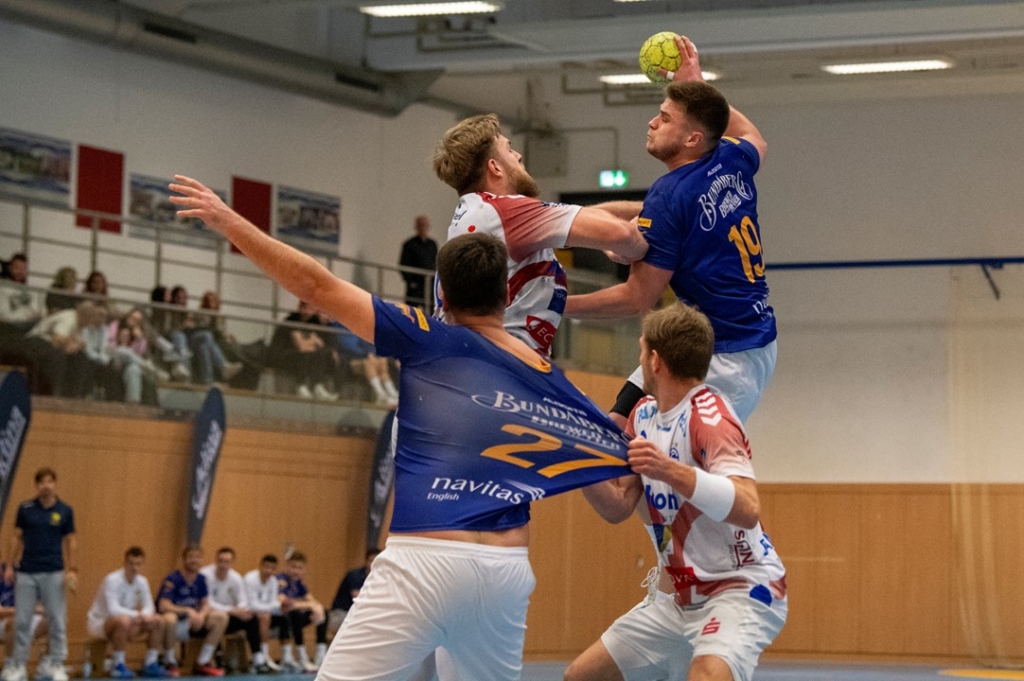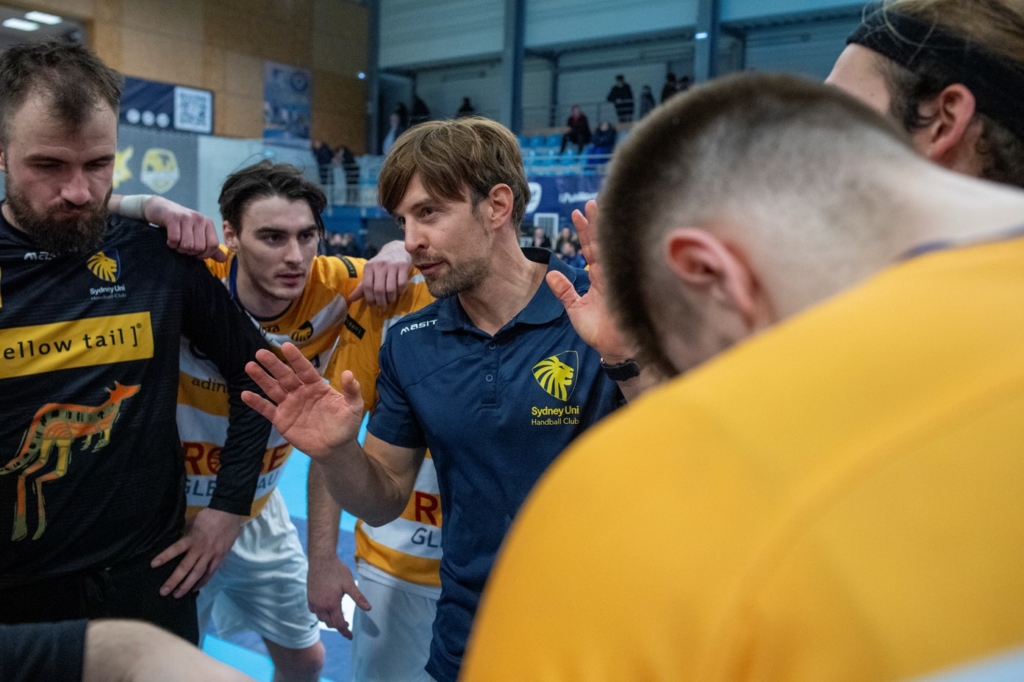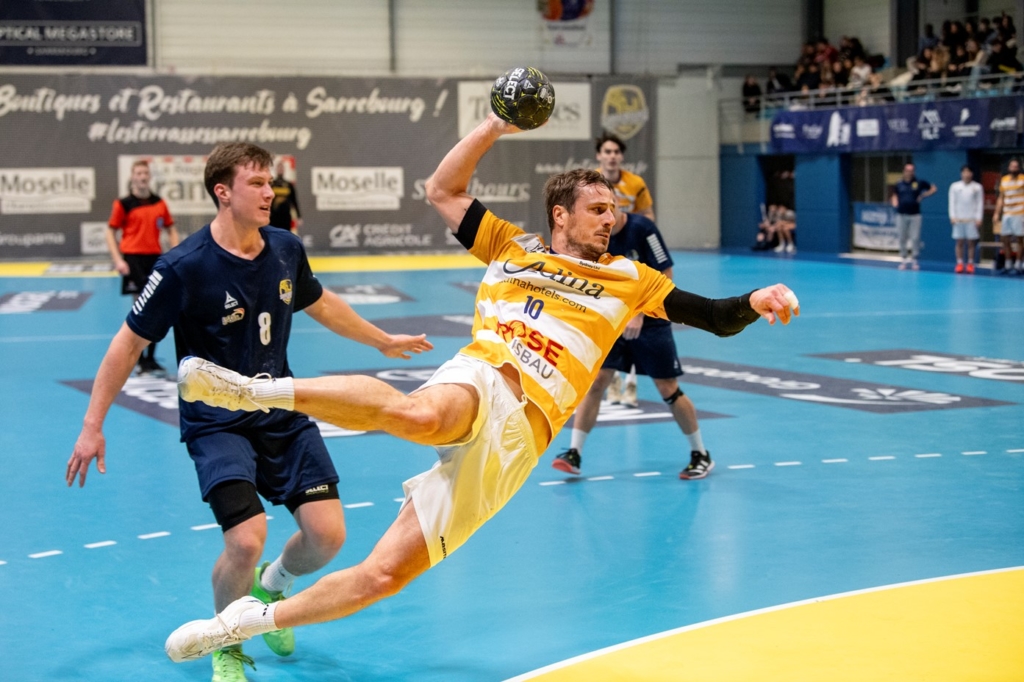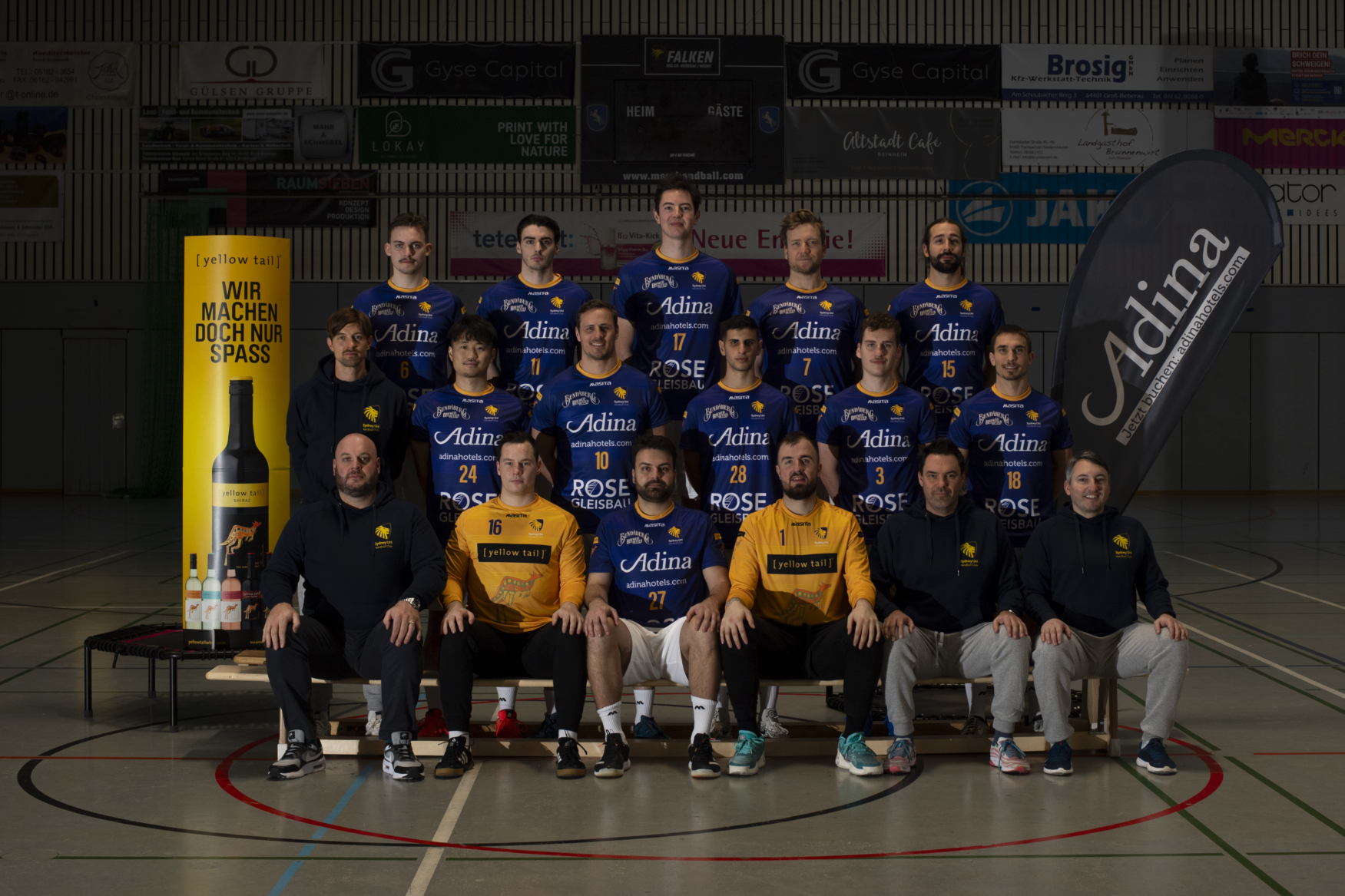Sydney University Handball Club’s recent four-match trek to Europe was the start of its ambitious OH-32 campaign to have competitive Australian men’s and women’s teams at the 2032 Brisbane Olympic Games.
The club played three matches in Germany and one in France against second and third-division teams, most of them fully professional clubs.
“More than 100 clubs are running professionally in Germany alone – both male and female – with budgets from $500,000 to $20 million,” interim SUHC President Steve Plummer said. “Handball is the second most watched team sport in Germany, and the European Championship, which was on while we were in Europe, just attracted a total of more than one million spectators into the stadiums.
“Our team consisted of a mix of current Sydney University players based in Sydney, some experienced Australian representatives, three young Australian players, and several players with experience in 1st and 2nd division in Europe.
“We lost to TSV Amictia Viernheim (22-20), Grosswallstadt (32-22), and SG Kondringen/Teningen (36-26) in Germany and finished the tour with a match against Sarrebourge in the Lorraine region of France (lost 38-27). The last time the men in blue and gold met Sarrebourg we won 29-27. In 2015 SMS was a rising team in the French 3rd division. They have now risen to the 2nd division and the challenge was on.
“The teams went goal for goal for the first 20 minutes before the French pulled ahead. Outstanding work from our national goalkeeper Bjørn McCourt kept Sydney Uni in touch. And a clinical penalty by Chris Fallah spurred the team on down the home stretch. The end result saw Sarrebourg win 38-27.”
Another reason behind the European tour was to be prepared to reclaim the Oceania Championship. “We won the title for 11 years but lost to the University of Queensland last year and we want to get it back,” Mr Plummer said.
Sydney University Handball Club was established in 1995 and has since been one of the most successful handball clubs in Australia. Sydney Uni players consistently feature in Australia’s men’s and women’s national teams at senior and junior levels, and there are countless state and national titles on the club’s records.
However, as Mr Plummer points out, handball in Australia is far from being as developed as it is in other countries, specifically in Europe. “It has to be acknowledged that SUHC cannot be compared with leading teams in other countries,” he said. “Coaches are not professionals, no players receive any monetary or other benefits, and everyone is in it purely for the love of handball.
“What the club can offer though is a unique environment that brings together ‘handball maniacs’ from all over the world. And because Sydney Uni has consistently been able to attract high-quality players who come to live in Sydney for study or work, SUHC has been able to take a leading position in the Oceania handball region and, as a consequence, has for the last few years qualified for the Oceania Club Championships and the IHF Super Globe in Qatar.
“We believe that SUHC is in a very unique position and we can offer young and ambitious players opportunities that probably no other club in the world can.”
Mr Plummer said the IHF will be sending instructors to Australia in February to train local coaches. “We’re part of the Federation’s new market approach,” he said. “With trained coaches, we’ll undertake a grassroots program for 16-year-olds so they’ll be prepared for the 1932 Games.
“We’re also pushing to get a national league up and running, but because of funding restraints it will most probably be an east coast league through Sydney, Brisbane, Melbourne, and Canberra.”
Bring on the Brisbane Games.
